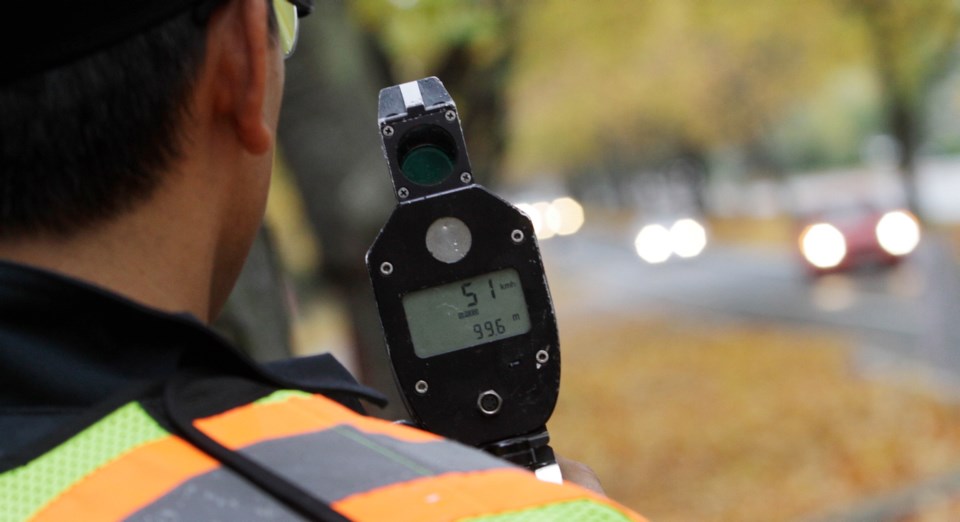The idea of lowering the default speed limit on municipal streets to 40 kilometres per hour sure gets some people’s blood racing, says a Victoria councillor who is championing the change.
“It’s a rather divisive issue,” said Coun. Shellie Gudgeon. “I’ve probably had the most hate mail [on this] than I’ve had since I’ve been elected. It’s shocking, actually.”
Victoria council has proposed the lower speed become the default on residential streets in a resolution it hopes to see passed at the Union of B.C. Municipalities convention in Vancouver in September. While Gudgeon believes there is support among the majority of Victoria residents, getting the resolution passed “will be tough.”
She said she’s been surprised at how auto-centric some of the public seems to be and how opposed some are to the idea.
“I’ve had a lot of people say: ‘Don’t you have better things to do?’ and ‘This is a waste of taxpayers’ money.’ I would actually completely disagree,” she said.
“I think it’s critically important to the livability of our city and to our growing communities and neighbourhoods in our city core. That’s why we’re moving ahead on it,” she said.
Coun. Ben Isitt points out that the change would not mean lowering the speed limit on all municipal streets. In fact, speeds of major routes would be maintained.
But it means that the speed would be reduced on residential roads where high speeds are not appropriate and where the safety of children, seniors, cyclists, and other road users should take priority, Isitt said.
The default speed on municipal roads is a provincial standard so that motorists don’t have to learn new rules when they move from municipality to municipality.
Having a default speed also means municipalities don’t have to post the speed limit on every road, Gudgeon said.
Gudgeon notes that by sticking to the 50-km/h limit, North American municipalities are “falling desperately behind” those in many European countries.
Last year the European Parliament adopted a resolution calling for local authorities to impose 30 km/h limits as a way of reducing the 31,000 annual deaths on Europe’s roads.
The idea of a lower limit for B.C. municipalities will be debated at the Association of Vancouver Island Municipalities convention in Sooke April 12 to 14, where Gudgeon and some other city councillors hope it will pick up support prior to the B.C. convention.
Some municipal leaders worry lowering the speed limit could mean increased enforcement costs.
Gudgeon said Oak Bay is doing a good job of lowering the speed at which many people drive by strategically posting 40 km/h speed limits on roads entering the municipality.
“It sends a powerful message. You wouldn’t dream of driving down Oak Bay Avenue at 40 and then get onto a narrow side road and go 50,” she said.
A forum to discuss a lower speed limit has been scheduled for March 27 at 7:30 p.m. at S.J. Willis Education Centre, 923 Topaz Ave. in Victoria.



